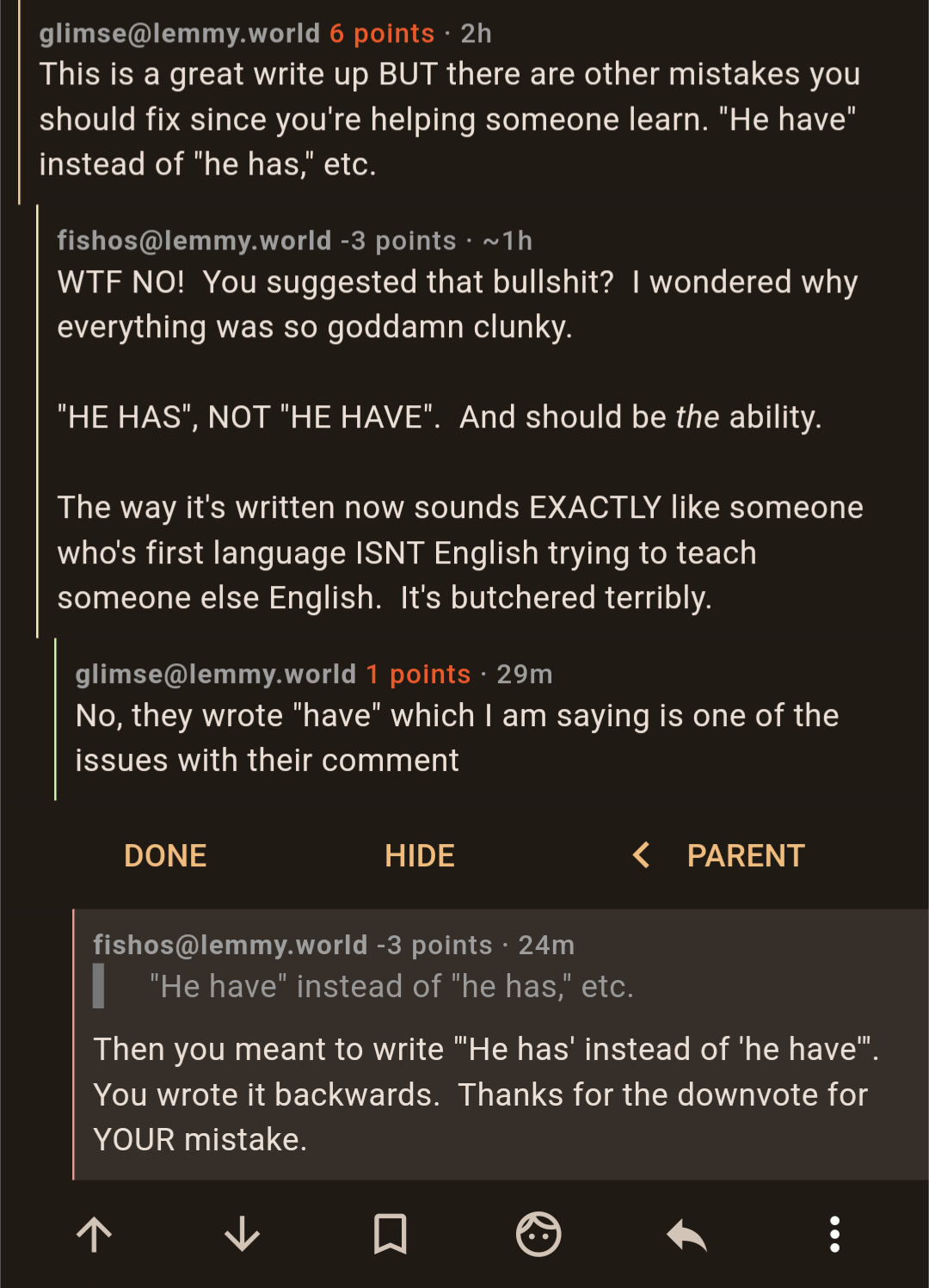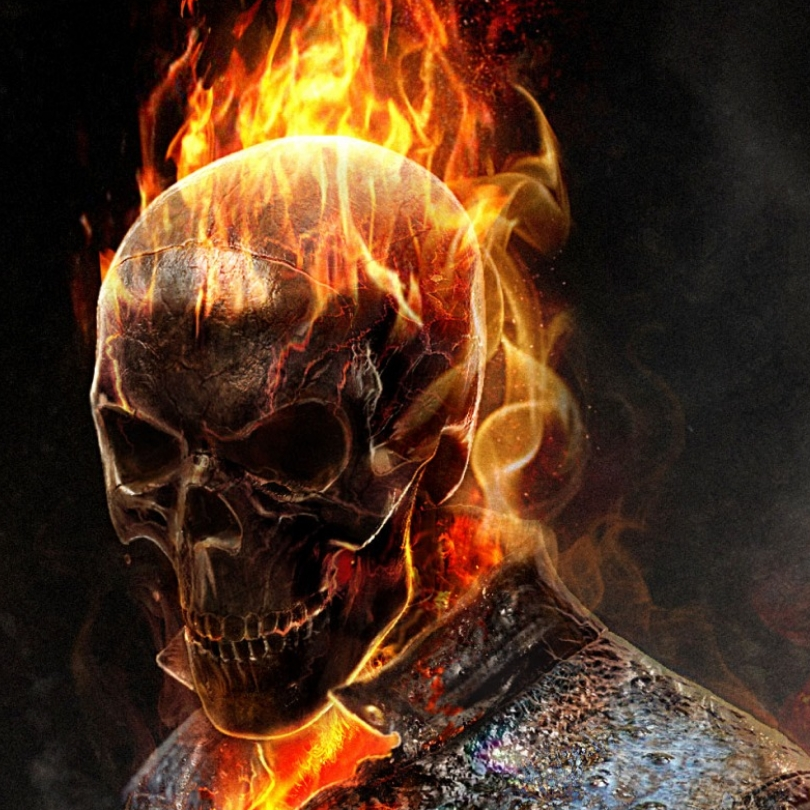hii,
I am learning English for around 5 years and I still can’t comprehend the meaning of “would” and “count” in some context. are they just past form of “will” and “can”?
“would you like coffee” means a person is asking if you liked coffee in past? “I would do it” means I did it in past?
I really don’t understand since my language doesn’t have anything like those words.
Edit: Thank you for answering my naive question :)
Will do: it is certain he do it in future.
Would do: it is certain he decide to do now or in future it if he has ability to do and/or knows about it and/or nothing else stop him.
Would have done: it is certain he decide to do in past if he had ability to do and/or knew about it and/or nothing else stop him.
Can do: he have ability to do now or in future.
Could do: he have ability to do now or in future if he decide to do and/or no external condition that stops it being done.
Could have done: he had the ability, he didn’t do in past (maybe there are reasons).
would = intent to do if there is ability.
could = ability to do if there is intent.- intent: the desire to do and/or the knowledge that it needs to be done and/or no external condition that stops it being done.
“would you like coffee” = If I give to you ability to drink coffee right now, what is your answer, Yes or No?
“I would do it” = If nothing stops me and I have the ability to do, then I do it. This is said with knowledge that some condition must be met before you can do it:
“I would drink that coffee if you give it to me.”
It is letting the listener know that you intend to do action, but it first requires some other thing to happen which gives you ability.This is a great write up BUT there are other mistakes you should fix since you’re helping someone learn. “He have” instead of “he has,” etc.
WTF NO! You suggested that bullshit? I wondered why everything was so goddamn clunky.
“HE HAS”, NOT “HE HAVE”. And should be the ability.
The way it’s written now sounds EXACTLY like someone who’s first language ISNT English trying to teach someone else English. It’s butchered terribly.
No, they wrote “have” which I am saying is one of the issues with their comment
“He have” instead of “he has,” etc.
Then you meant to write “‘He has’ instead of ‘he have’”. You wrote it backwards. Thanks for the downvote for YOUR mistake.
They didn’t write a mistake. They’re correcting the original comment and their correction is worded correctly.
The corrector was ambiguous about which version was the original and which version was the correction, as there are some [assumed words] that were left out and could be either “you said” or “it should be.” My initial reaction was the same as the heavily downvoted person above, because my brain filled in “it should be” as the assumed words, where most people seemingly filled in “you said.”
I probably should have worded it differently to be more clear but I was pointing out the mistakes so my grammar was correct.
But speaking of mistakes, it looks like you just made your second one by implying I downvoted you!

I’m getting quite the laugh at someone getting this angry over their own lack of reading comprehension.
I originally parsed their comment the same way you did, but I would have either asked for clarification or politely corrected them. Please be more respectful of others, there’s really no need to be so agressive.
Aha, but there is also no reason to be so sensitive 🤔
Will do can also mean enough. Like,
… ?
The more I thought about what I was trying to say the less it made sense so I intended to delete it but I guess I submitted the unfinished post instead
“Would” is a very confusing word in English. It can mean opposite things, but native English speakers don’t usually notice how confusing it is.
“Would you?” can be a polite way of asking asking a question. “Would you like some coffee?” is basically the same as “Do you want some coffee?” but a little gentler. It implies more permission to say no.
You say yes to a “would you” question by saying “I would,” or, “yes, I would.”
EXCEPT
“I would” can also be a polite way of saying no. It means that the answer would be yes under some different circumstance. Someone might say “I would have some coffee, but I’m avoiding caffeine.” This is like saying, “Under a different circumstance I’d gladly accept your offer.”
So if I ask “would you like some coffee?” and you say “I would.” That means yes. If you say “I would, but I just had some.” That means no.
Many English learners find this extremely confusing, for good reason.
You’re not helping to describe the use of “would” by adding extra words to negate the intent. “I would, but I won’t” is two statements. You’ve instead described the use of the word “but”.
Consider the difference between “would do” and “could do” to be the same as “will do” and “can do”, respectively.
One implies action, the other implies capability.
There’s also “should”, which implies permission.
Consider, also, the progress of learning Python (programming language):
- Could I do this in Python?
- I would do this in Python.
- I shouldn’t do this in Python.
Edit to add: Would, could, and should are usually considered future-tense. But add “have” and it’s past-tense…“I would have done that”
Haha there’s some shade
Would: https://www.dictionary.com/browse/would
• a simple past tense and past participle of will
• used to express an intention or inclination
• used to express an uncertainty
• used in conditional sentences to express choice or possibilityCould: https://www.dictionary.com/browse/could
• a simple past tense of can
• used to express possibility
• used to express conditional possibility or ability
• used in asking for permissionWould / will is used when something is possible but you’re not sure.
Could / can is used when you’re not sure if something is possible. –This is the right answer
If you won’t, then you can’t because mental barrier, but if you can’t maybe you would if you could.
I would love to help you, but I couldn’t possibly do that.
😋
I would love it if you could have helped me.
Did I get it right? :D
I think the ideal phrasing is slightly different than the other poster. I would instead say “I would love it if you could help me” as that leaves open the possibility of present/future help. Saying “could have helped” presumes that it cannot be done anymore.
You would have got it perfect if you had said “I would have loved it if you could have helped me”, but you could say that you got it right.
American - i would have said you would have gotten it perfect if you had said…
Brits prefer got?
No, I think gotten is better there, my sloppiness
I’m not a linguist, but here’s how I understand it:
This is why would is so fucked: it’s used both in the conditional, and the subjunctive mood. However, nothing I see in the online resources really talks about would being used in the subjunctive.
When someone uses the phrase “would you like a coffee?” I’m nearly certain that it’s the subjunctive, polite way of saying “do you want coffee.” It’s very similar to the Spanish quieres/quisieras pair. In Spanish you get an irregular conjugation, but in English, the whole verb changes from to be to will.
As a non-linguist, native speaker, these mood changes come naturally to me. I never had to study them. As a second language learner, this is always one of the most brain-melting facets of a new language.
Edit: “do you” obviously isn’t exactly using the verb to be. I’m not sure what to call that expression. It seems like it could be its own post. This is giving me a headache. This post gets into it, but doesn’t really give the specific answers that I suspect you’re looking for.






